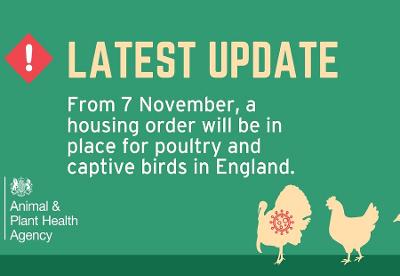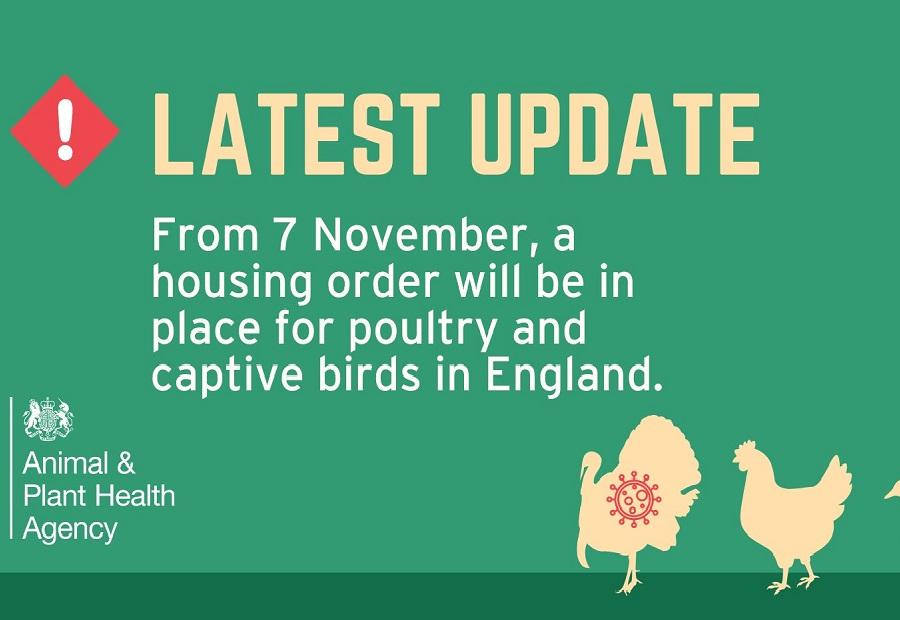Mandatory bird housing measures introduced from 7 November

Mandatory housing measures for all poultry and captive birds are to be introduced to all areas of England from 00:01 on Monday 7 November, following a decision by the United Kingdom's Chief Veterinary Officer.
The housing measures legally require all bird keepers to keep their birds indoors and to follow stringent biosecurity measures to help protect their flocks from the disease, regardless of type or size.
The order will extend the mandatory housing measures already in force in the hot spot area of Suffolk, Norfolk and parts of Essex to the whole of England following an increase in the national risk of bird flu in wild birds to very high.
Over the last year, the United Kingdom has faced its largest ever outbreak of avian influenza with over 200 cases confirmed since late October 2021. The introduction of the housing measures comes after the disease was detected at over 70 premises since the beginning of October, as well as multiple reports in wild birds.
The Chief Veterinary Officer is now encouraging all bird keepers across England to use the rest of the week to prepare, including taking steps to safeguard animal welfare, consult their private vet and expand housing where necessary.
The UK Health Security Agency continues to advise that the risk to public health from the virus is very low and the Food Standards Agency advice remains unchanged, that avian influenzas pose a very low food safety risk for UK consumers. Properly cooked poultry and poultry products, including eggs, are safe to eat.
Find out more from DEFRA and the Animal and Plant Health Agency (opens new window)

Mandatory housing measures for all poultry and captive birds are to be introduced to all areas of England from 00:01 on Monday 7 November, following a decision by the United Kingdom's Chief Veterinary Officer.
The housing measures legally require all bird keepers to keep their birds indoors and to follow stringent biosecurity measures to help protect their flocks from the disease, regardless of type or size.
The order will extend the mandatory housing measures already in force in the hot spot area of Suffolk, Norfolk and parts of Essex to the whole of England following an increase in the national risk of bird flu in wild birds to very high.
Over the last year, the United Kingdom has faced its largest ever outbreak of avian influenza with over 200 cases confirmed since late October 2021. The introduction of the housing measures comes after the disease was detected at over 70 premises since the beginning of October, as well as multiple reports in wild birds.
The Chief Veterinary Officer is now encouraging all bird keepers across England to use the rest of the week to prepare, including taking steps to safeguard animal welfare, consult their private vet and expand housing where necessary.
The UK Health Security Agency continues to advise that the risk to public health from the virus is very low and the Food Standards Agency advice remains unchanged, that avian influenzas pose a very low food safety risk for UK consumers. Properly cooked poultry and poultry products, including eggs, are safe to eat.
Find out more from DEFRA and the Animal and Plant Health Agency (opens new window)
